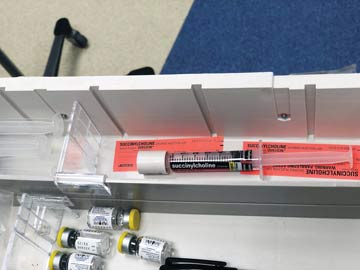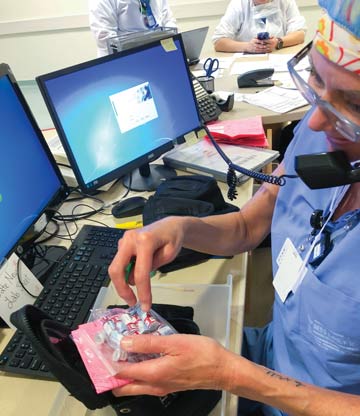If you're considering prefilled syringes for your facility, a little perspective goes a long way. It doesn't make sense to do an apples-to-apples cost comparison of prepackaged medications with vial-filled versions of the same drugs. There are several indirect and intangible benefits to the prefilled syringe equation, and until you've examined them from all angles, you aren't going to get a full picture of how ready-to-administer meds contribute to cost-effective, efficient and safe patient care.
It's also important to consider that multiple-dose vials should not be used for more than one patient, meaning you're often forced to discard at least some unused medication at the end of case. If you're regularly wasting even half of the medications you purchase, chances are prefilled syringes will be less costly and more efficient in the long run. When you consider these factors, the gap shrinks between the cost of prefilled syringes and manufactured medications.
- Significant time-savings. Anesthesia providers appreciate working with prefilled medications — and for good reason. The medications come prelabeled, which eliminates the time-consuming task of drawing up — and sometimes diluting — medications as well as complying with necessary labeling requirements for syringes prepared at the surgical site.
In my role as a pharmacy consultant, I observe the types of medications facilities tend to purchase in prefilled syringes. The most common options tend to be emergency drugs that facilities like to have ready for immediate administration such as rocuronium, succinylcholine, ephedrine and phenylephrine. A variety of ophthalmic medications such as moxifloxacin and cefuroxime used for intracameral administration that require very specific dosing are also commonly bought in prefilled syringes. An added benefit of getting ophthalmic drugs from a compounder: They tend to be products that cannot be reliably duplicated without a lot of preparation and effort.
.svg?sfvrsn=be606e78_3)


.svg?sfvrsn=56b2f850_5)